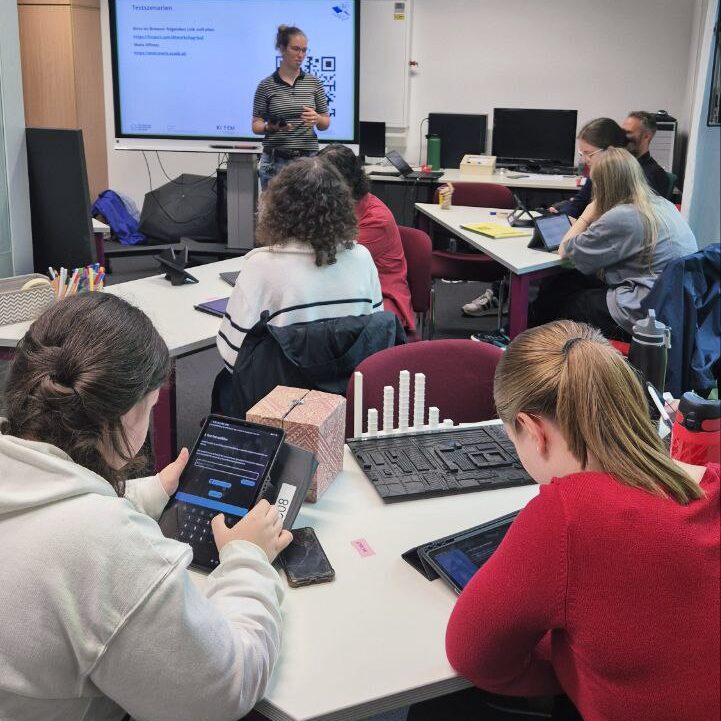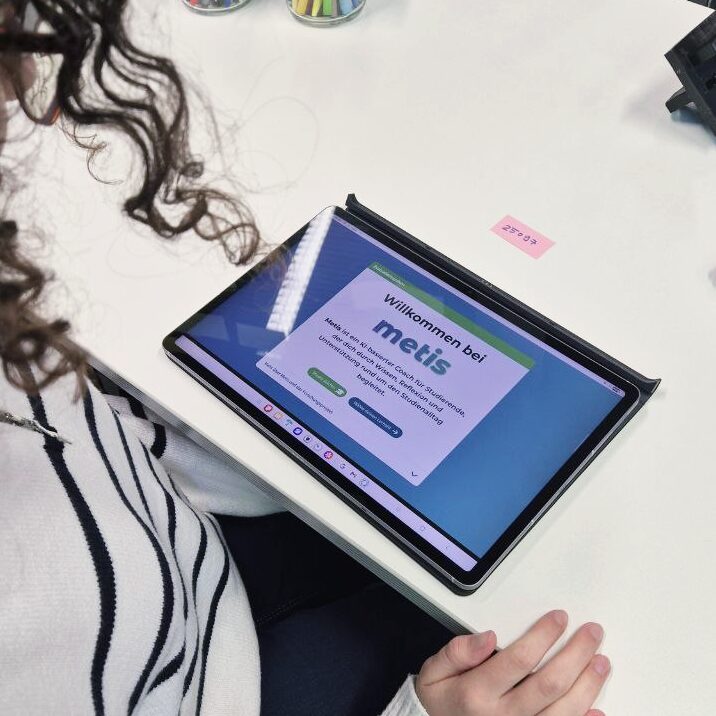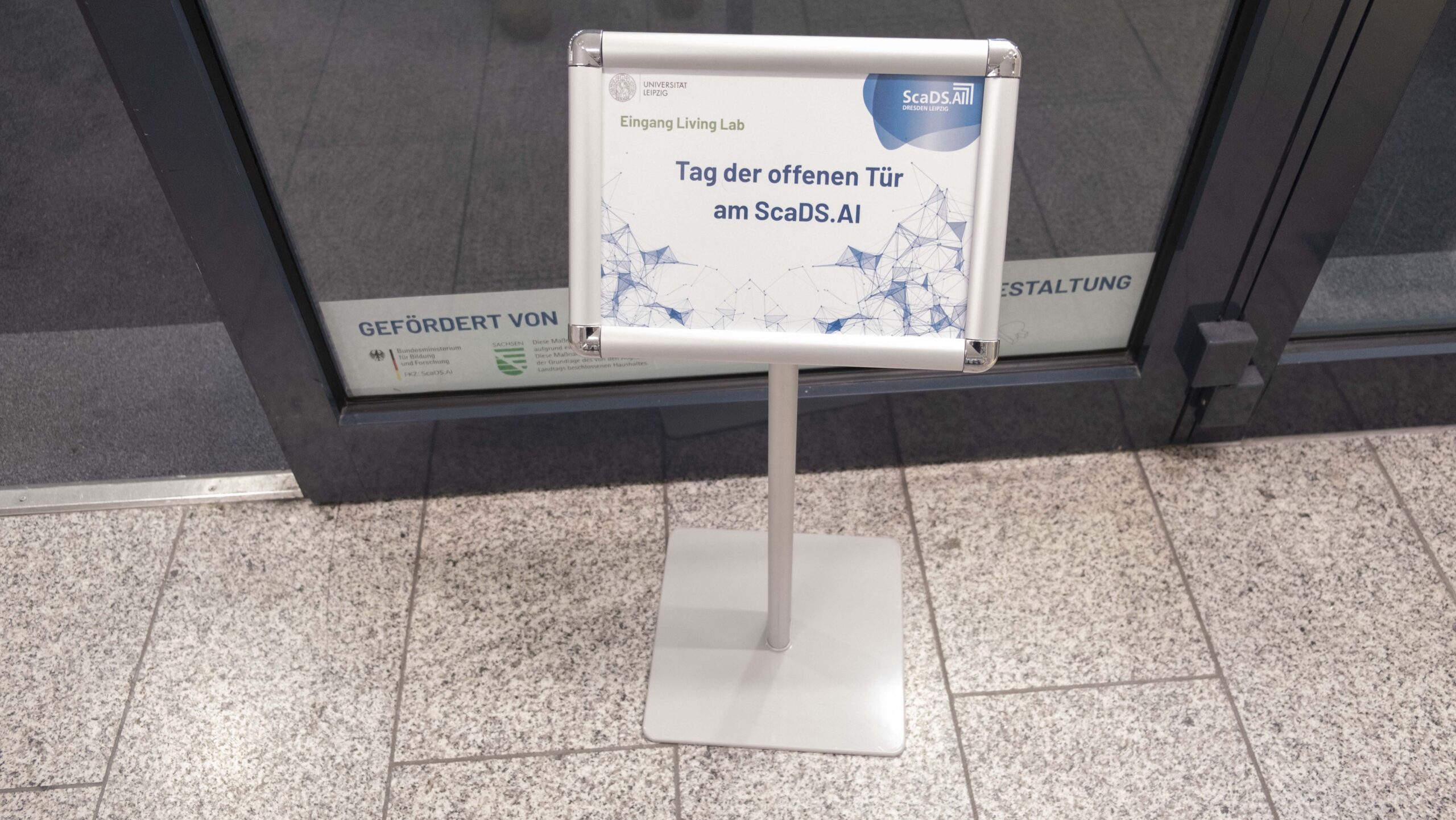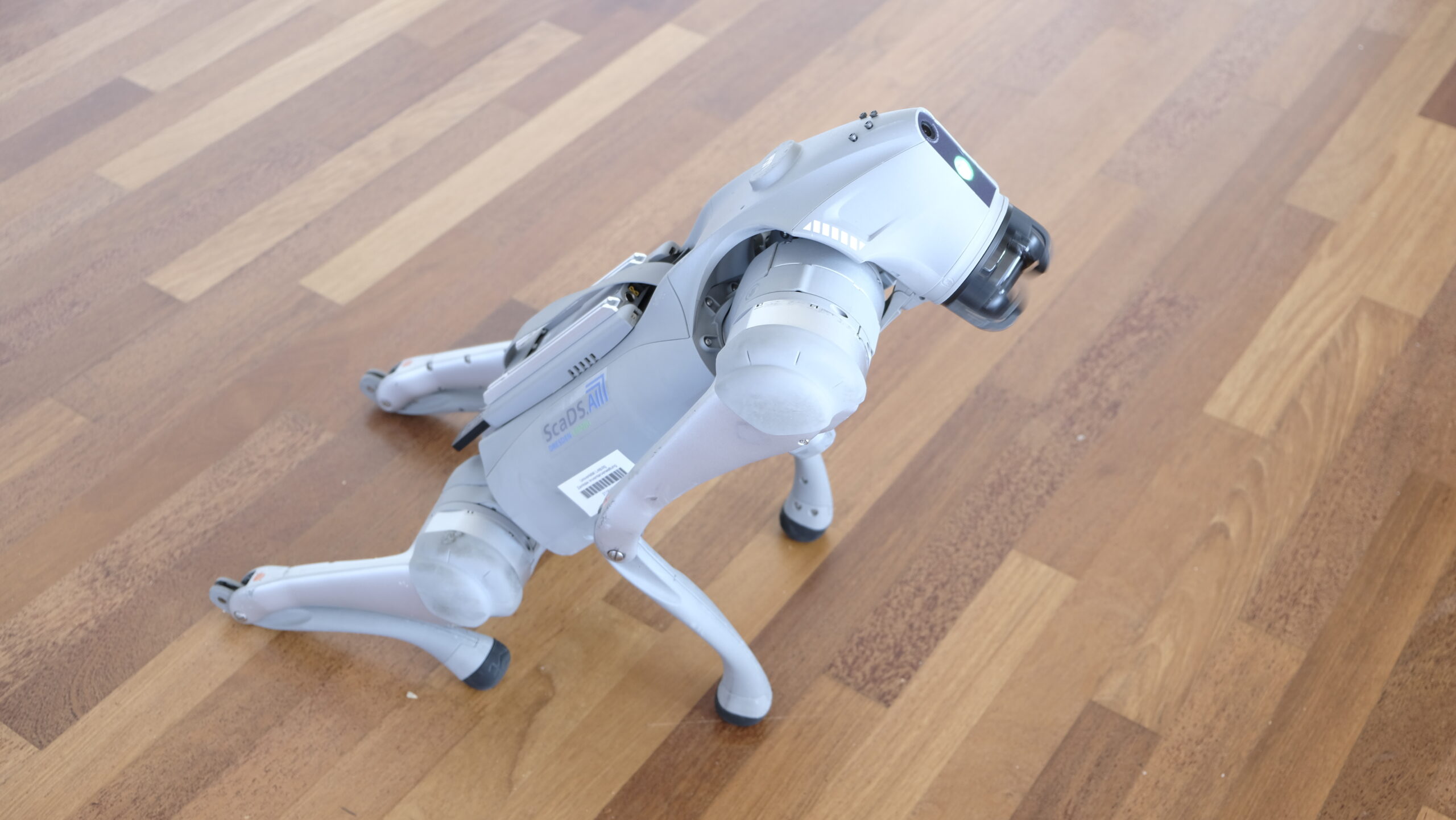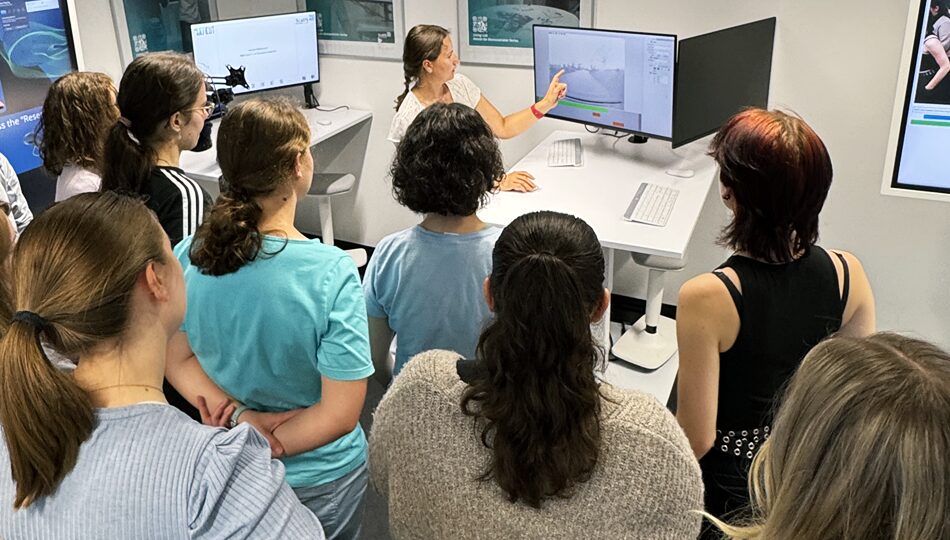
September 5, 2025
tryING 2025: Insights Into AI, Laser Cutting, and Design Thinking methods

ScaDS.AI Dresden/Leipzig took part in tryING 2025, a trial course that gives female high school graduates an insight into studying engineering at TU Dresden. By participating, the young women take part in university life and attend various workshops. Furthermore they join a preliminary mathematics course and can take part in excursions to companies in Dresden. Learn more about the initiative here. This year, we offered two very well received workshops.
Understanding the World Through Computer Science – Introduction to AI, Programming and Laser Cutting (August 28-29)
On August 28–29, 2025, EduInf and ScaDS.AI Dresden/Leipzig welcomed 14 high school graduates for tryING 2025. In our joint workshop, we offered the young women a broad insight into our work and the many fascinating thematic subfields of computer science.
EduInf
On August 28, 2025, the young women joined an interesting two-part workshop at EduInf. The first part of the workshop provided insights into programming and edge AI by using a Jetbot. The JetBot is a small, mobile robot with a camera and integrated machine learning functions. It is based on the Jetson Nano single-board computer. This part of the workshop addressed various problems in the context of autonomous space probes – from controlling and wirelessly remote-controlling the robot to training models for tasks such as autonomous driving or obstacle avoidance.
The second part of the workshop was focused on the connection between engineering and computer science, setting a particular focus on laser cutters. The young women created their own designs, built the corresponding models, and then produced them using a laser cutter. It was obvious that all participants enjoyed working with a laser cutter a lot.
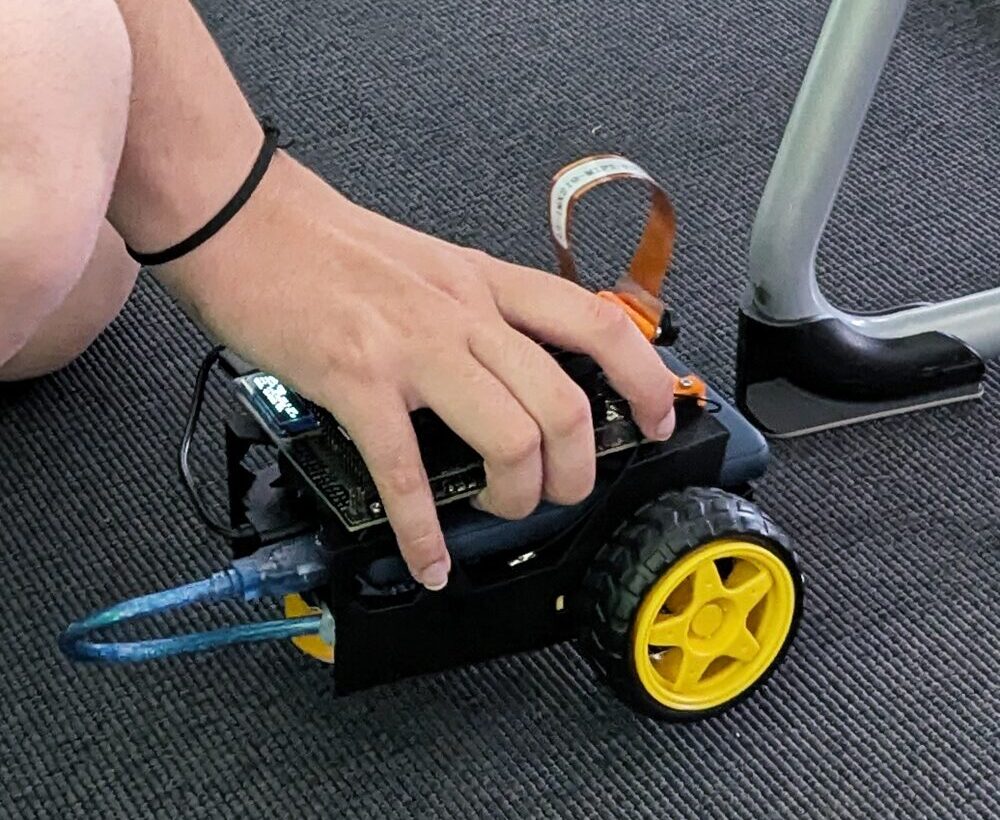
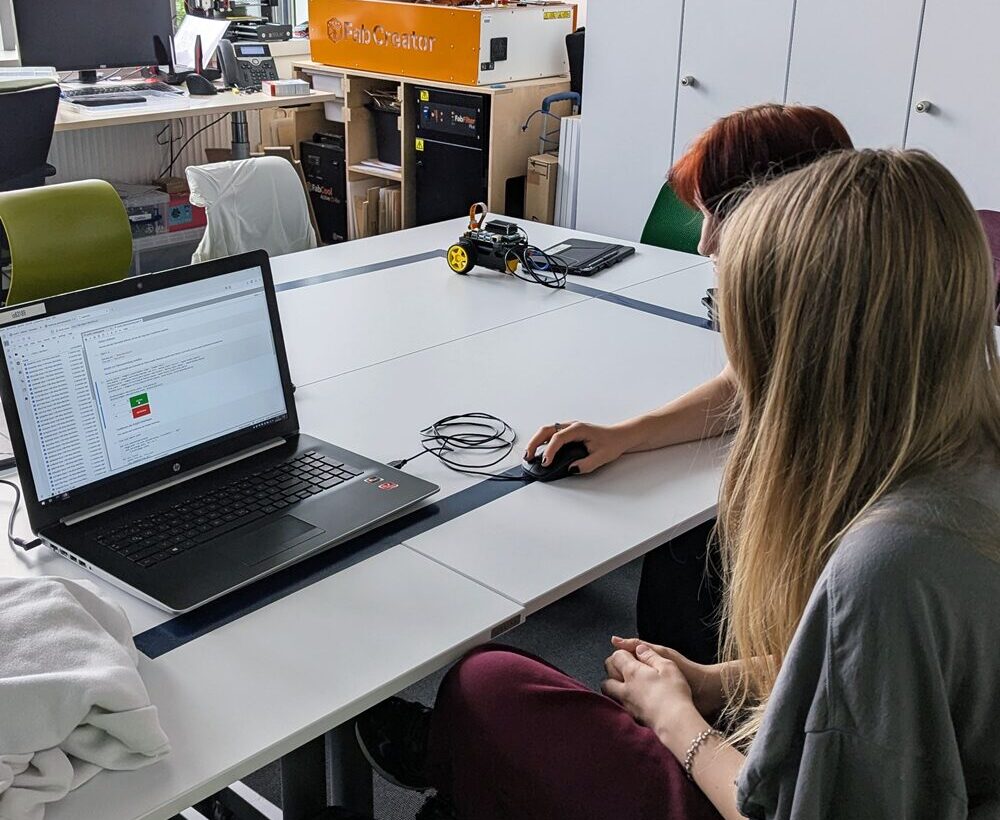
ScaDS.AI Dresden/Leipzig
The following day, we welcomed the young women at the Living Lab in Dresden. The day began with a brief introduction to ScaDS.AI Dresden/Leipzig by Dr. Iryna Okhrin. Lena Jurkschat then gave insights into her journey from studying Computer Science up to becoming a scientist herself. Following up on that, she teached our visitors more about large language models and their functionalities. Afterwards, Moritz Müller presented the Living Lab demonstrators, which the young women were able to try out themselves afterwards.
In the afternoon, Dr. Iryna Okhrin introduced the participants to machine learning. She gave an overview of classical methods, while using entertaining examples to highlight the importance of data quality. The young women actively discussed AI’s role in our everyday lives, including questions about responsibility, discrimination, bias, and the dependence on AI. Towards the end, we explored various potentials of AI, including:
- supporting healthcare,
- advancing scientific research,
- enhancing education, and
- aiding decision-making in various industries.
Furthermore, we discussed the importance of explainable AI as a tool for understanding the “black box”, reducing errors, and extracting insights from complex models. The young women expressed legitimate concerns, e.g. whether certain professions could be replaced by AI. Together, we explored vivid examples of the potential misuse of AI and the associated consequences. The young women’s motivation and intelligent arguments highlighted that they were not only well informed, but also highly interested in the topic.
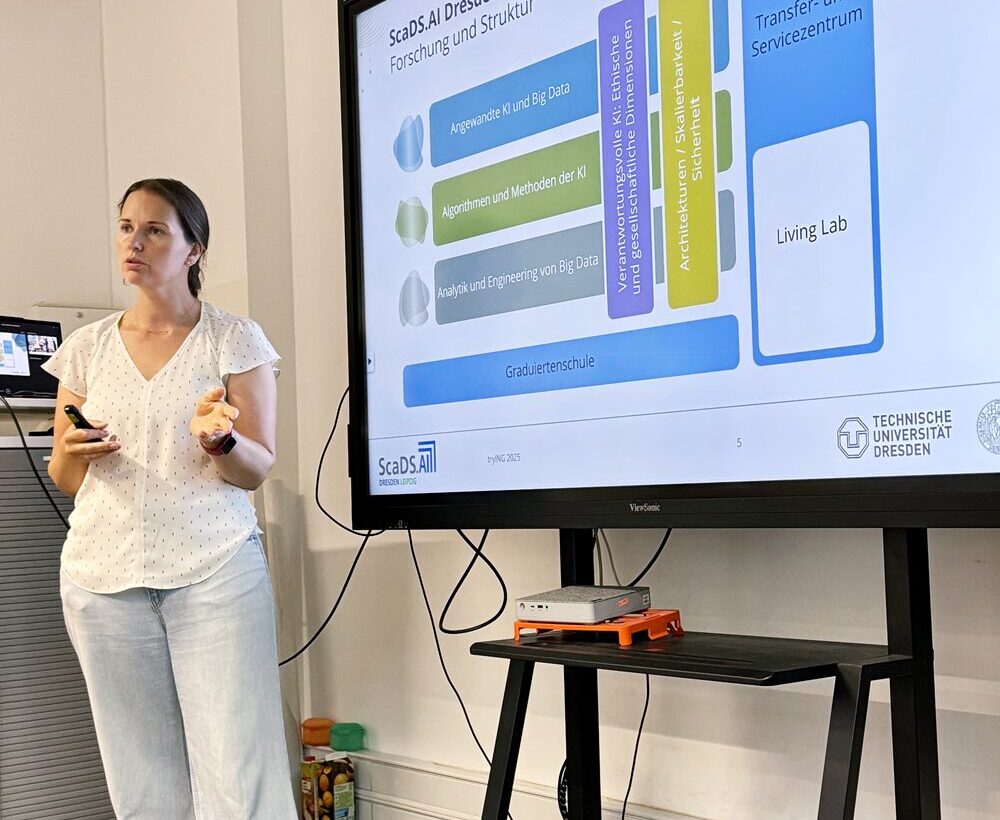
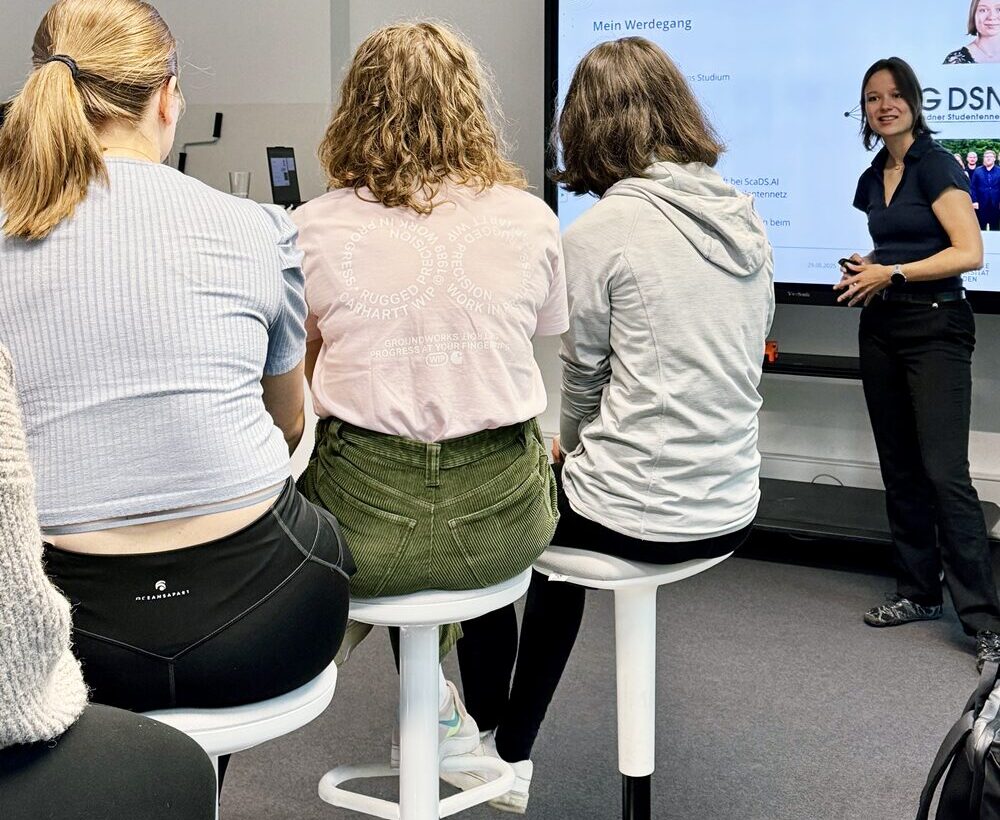
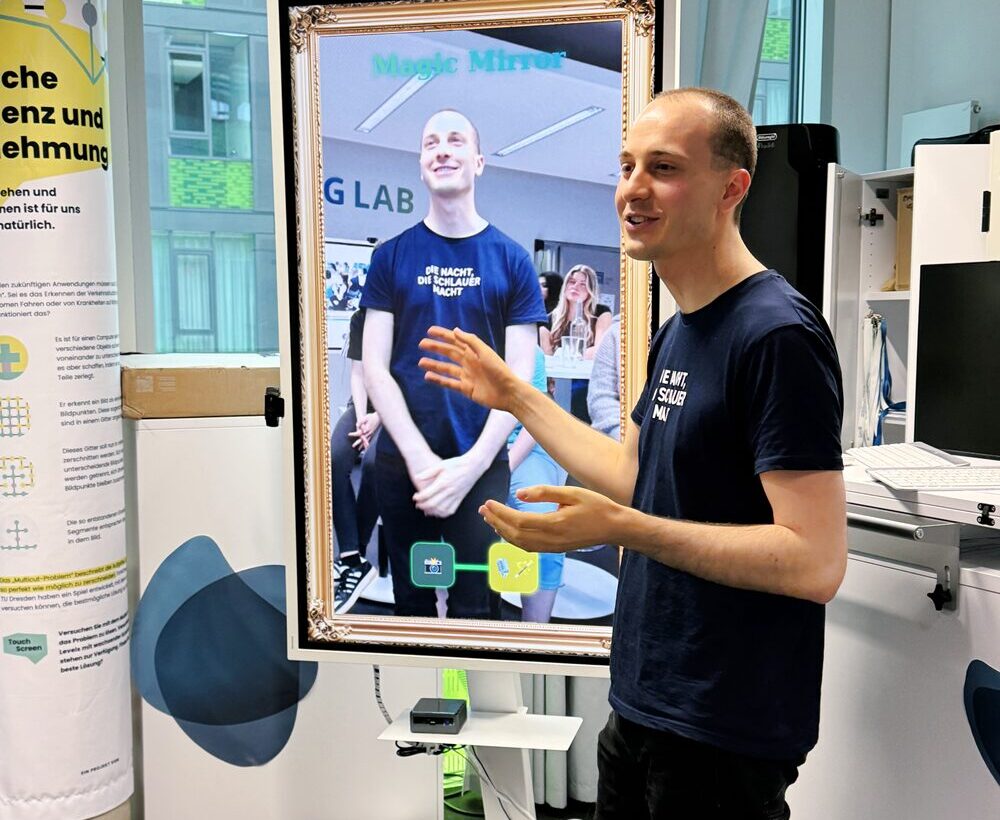
Design Thinking (September 1–2)
From September 1–2, 2025, 12 motivated young women took part in a two-day Design Thinking workshop at TU Dresden – and discovered that computer science is much more than just programming. Guided by Dr. Claudia Loitsch (ScaDS.AI Dresden/Leipzig) and Annika Lau (ServiceCenterStudies), the participants engaged with key Design Thinking methods and applied them to real-world challenges in user interface (UI) design.
The workshop centered around a simple, but powerful idea: a good UI is always present, yet never in the way. It supports users with their tasks, anticipates their needs, and reduces friction in interaction. This focus on human-centered design is essential. Especially in the field of computer science, technical excellence must go hand in hand with usability. During the workshop, the participants explored this structured approach to problem-solving:
- Interview for empathy (6W Method): to identify and understand the real problem by asking who, what, when, and why.
- Problem statement definition: to deeply explore user perspectives – what they see, hear, think, feel, say, and do.
- Brainstorming: to generate creative and diverse ideas for solving the problem.
- Prototyping: using paper prototypes or storyboards to visualize and test potential solutions.
- Focus grouping and testing: to gather direct user feedback and evaluate how well the proposed solutions meet real needs.
A special highlight of the workshop was the chance to interact with Metis, an AI-based learning companion. Metis is currently under development at ScaDS.AI Dresden/Leipzig within the Junior Research Group NAIC. It supports learners in self-directed study contexts by integrating coaching approaches that adapt to individual motivation, learning goals, and skill development. Through interdisciplinary collaboration, Metis is continuously being extended with subject-specific AI modules that are already being piloted in high-enrollment university courses – enhancing traditional tutoring through personalized support.
The workshop gave the young women not only insight into the creative and collaborative aspects of computer science but also hands-on experience on how AI tools like Metis can benefit from Design Thinking in their own development.
